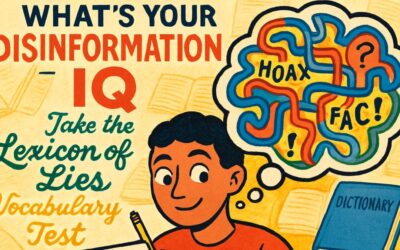Welcome to the Eco-Lexicon: A Quiz for Future Environmental Leaders
To effectively address the planet’s most pressing environmental challenges, we must first be able to speak about them with clarity, precision, and authority. The field of Environmental Studies has its own specialized language—a lexicon that allows scientists, policymakers, and activists to communicate complex ideas accurately. This quiz is your gateway to mastering that language.
This is more than just a vocabulary test; it’s an interactive learning experience designed to bridge the gap between passion for the environment and the academic rigor required to protect it.
By taking this quiz, you will:
- Master University-Level Vocabulary: Learn the key terms you will encounter in textbooks, academic journals, and lectures.
- Understand Complex Concepts: Grasp the meaning behind the words through real-world environmental scenarios and detailed explanations.
- Improve Your Academic Writing: Gain the confidence to use this vocabulary correctly in your essays, research papers, and presentations.
- Think Critically: Learn to distinguish between closely related terms and understand the specific nuances that are critical for scientific accuracy.
Whether you are a student of environmental science, geography, policy, or simply a citizen dedicated to being better informed, this quiz will equip you with the vocabulary you need to contribute meaningfully to the conversation. Let’s begin.
Learning Quiz
This is a learning quiz from English Plus Podcast, in which, you will be able to learn from your mistakes as much as you will learn from the answers you get right because we have added feedback for every single option in the quiz, and to help you choose the right answer if you’re not sure, there are also hints for every single option for every question. So, there’s learning all around this quiz, you can hardly call it quiz anymore! It’s a learning quiz from English Plus Podcast.
Quiz Takeaways
Congratulations on completing the quiz. If you’re a student of Environmental Studies or simply passionate about the planet, the vocabulary we’ve just explored is the key to engaging with the topic at a serious, academic level. Being able to talk about the environment is one thing; being able to write a research paper, understand a scientific journal, or debate policy using the correct terminology is another. These words are your tools for building a credible, authoritative voice.
Let’s organize what we’ve learned into a few key themes to see how these concepts connect to tell the larger story of our planet and our role within it.
First, let’s look at the vocabulary that describes the foundational components of life and land. At the broadest level, we have the ecosystem, which is the complex web of living organisms and their physical environment interacting as a single unit. The variety of life within that ecosystem is its biodiversity. High biodiversity is often a sign of a healthy, resilient ecosystem. Within these systems, certain species play outsized roles. We learned about endemic species, which are those found in one specific geographical location and nowhere else on Earth. This makes them incredibly vulnerable. We also discussed the keystone species, an organism whose impact on its environment is disproportionately large relative to its population. Like the keystone in an arch, its removal can cause the entire structure to collapse. And when we talk about human use of the environment, a critical term is arable land—the land that is suitable for growing crops, a finite resource essential for feeding the world.
Next, we move to the vocabulary of human impact and pollution, a central theme in environmental studies. The most important word here is anthropogenic, which means ‘originating from human activity.’ It’s the word that allows us to distinguish between natural environmental changes and those caused by our own actions. Major anthropogenic impacts include deforestation, the clearing of forests, and desertification, the process by which fertile land becomes desert. When we pollute, the language gets even more specific. We learned about eutrophication, the process where fertilizer runoff overloads a lake with nutrients, causing algal blooms that starve the water of oxygen. We discussed leachate, the toxic liquid that percolates through landfill waste and can poison groundwater. And we covered particulate matter, the tiny airborne pollutants that are so dangerous to human health. These pollutants can enter the food web, leading to two processes we distinguished in the quiz: bioaccumulation, where a toxin builds up in a single organism, and biomagnification, where the concentration of that toxin increases as it moves up the food chain.
Of course, the biggest anthropogenic challenge is climate change, which has its own crucial vocabulary. The entire system is driven by the greenhouse effect, and a key concept in mitigating this is carbon sequestration—the process by which natural systems like forests and oceans capture and store atmospheric carbon. Scientists are deeply concerned that these systems are approaching a tipping point, a critical threshold where a small change could trigger a massive and irreversible shift, like the collapse of an ice sheet. One reason for this is a change in the Earth’s albedo, its reflectivity. As white, reflective ice melts, it is replaced by dark, absorbent ocean, which heats up faster, creating a dangerous feedback loop. Understanding these terms is essential for understanding the urgency of the climate crisis.
But environmental studies is not just about problems; it’s about solutions. This brings us to our final theme: the vocabulary of conservation and restoration. The guiding principle for all modern environmental action is sustainability. As we saw, this means meeting our own needs without compromising the ability of future generations to meet theirs. To achieve this, we practice resource management, ensuring we only take a sustainable yield from a fishery or forest. When damage has been done, the goal is remediation—the act of cleaning up contamination to make a site safe again. To get our energy, we are shifting away from finite resources like fossil fuels and toward renewable sources like geothermal energy, which taps into the Earth’s own heat. And to manage our most precious resource, water, we must think in terms of the entire watershed, the full area of land that drains into a specific river or lake.
As you can see, each of these words opens up a huge and important concept. Using anthropogenic instead of “man-made” or eutrophication instead of “algae problem” signals that you have a deep, technical understanding of the issues. It allows you to be precise and to communicate with other experts in the field. As you continue your studies, pay close attention to this language. Use it in your writing and speaking. It is the foundation upon which all credible environmental science and policy is built. Your passion for the planet is your motivation; this vocabulary is your power.










0 Comments